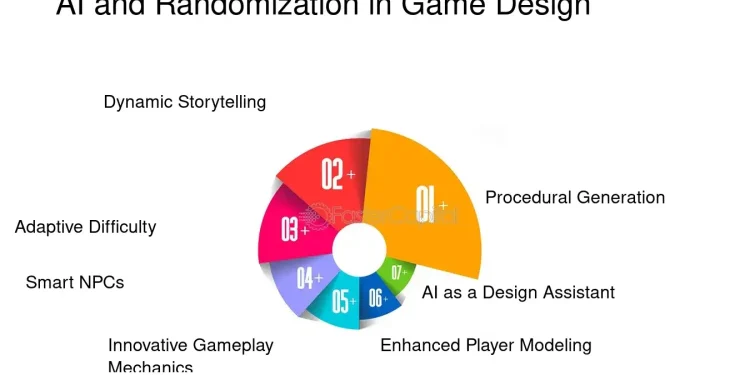Chance, Choice, and Character: How Randomness Shapes Our Playstyle in Video Games
Every gamer knows that moment when a random drop changes everything—when a rare weapon, unexpected challenge, or sudden twist redefines how you play. While skill and strategy are vital to success in games, randomness often plays a quieter yet powerful role in shaping not just outcomes, but the kind of player you become.
Random elements in video games can do more than surprise; they influence player behavior, decision-making, and even identity. Whether you’re someone who embraces chaos or constantly strategizes around uncertainty, how you respond to randomness says a lot about your gaming psychology.
The Psychology of Randomness
Randomness in games often mimics real-world unpredictability. It introduces variables that challenge players to adapt rather than execute a fixed plan. From critical hit percentages to procedurally generated maps, random systems create space for experimentation and improvisation.
This unpredictability taps into human psychology in fascinating ways. Some players become risk-takers, embracing randomness as a thrill. Others become control-seekers, attempting to “manage the odds” and reduce uncertainty as much as possible.
In either case, randomness makes games dynamic. No two sessions feel exactly alike, which is why even casual, repetition-based formats—like Livo88 login, for example—keep people returning for “just one more try.”
Randomness and Role Identity
Interestingly, how a player responds to randomness can shape their in-game persona. For instance:
- The Strategist: Treats randomness as a variable to be accounted for. These players build systems and fallbacks to minimize its impact.
- The Gambler: Thrives on chance. These players often make high-risk, high-reward choices, loving the suspense of uncertain outcomes.
- The Explorer: Welcomes randomness as a way to experience new paths and stories. They often replay games just to see what changes.
- The Purist: Prefers control and often plays on modes with minimal RNG (random number generation), seeking consistency and precision.
Games like Slay the Spire, FTL, or Binding of Isaac are designed to explore these archetypes. They offer scenarios where players must constantly reassess and adapt their style based on random events, loot, or challenges.
When Randomness Is the Core Mechanic
Some games center randomness entirely. Think of card games like Hearthstone or Marvel Snap, where deck draws determine tactical flexibility. Or roguelikes, where procedurally generated levels turn every playthrough into a unique test of resilience.
Even games outside these genres often use randomness to balance matchmaking, spawn points, and item placement—making each session unpredictable and reducing the potential for stagnation.
Randomness as a Narrative Device
It’s not just mechanics—randomness can also shape storytelling. In games like Disco Elysium, randomized skill checks determine dialogue paths, story branches, and character development. This ensures that each player’s experience—and even moral trajectory—is shaped by a combination of chance and choice.
By allowing randomness to influence not just how we play, but what we see and learn, developers create stories that feel more personal, more alive.
The Beauty of the Unexpected
Ultimately, randomness injects magic into gaming. It prevents formulaic repetition. It keeps us guessing. It reminds us that not everything can be predicted or optimized—and that sometimes, the most memorable moments are the ones we never saw coming.
Whether you’re solving complex puzzles, building cities, or spinning a digital reel to see what lands next—like on platforms such as livo88—those unexpected twists are what give games their sense of wonder.
Final Thought
Randomness isn’t just a mechanic—it’s a mirror. It reflects how we handle uncertainty, how we make decisions, and how we define ourselves in the face of the unknown. The next time a random event changes your course in a game, take note: you’re not just reacting. You’re revealing the kind of player—and person—you are.

























